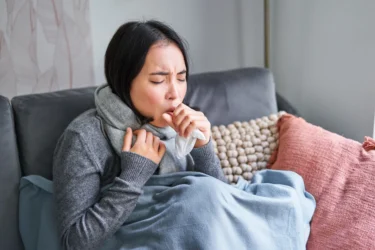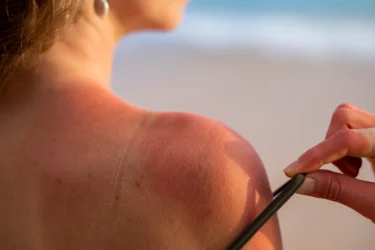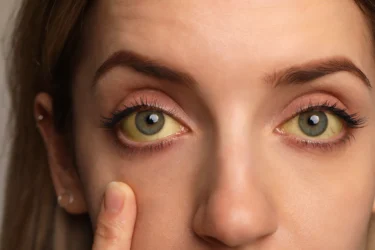Common Summer Season Diseases & How To Prevent Them?
By Dr. Nikita Toshi +2 more

Get,

to manage your symptom
Get your,


4 Cr+ families
benefitted

OTP sent to 9988776655



You’ve successfully subscribed to receive
doctor-approved tips on
Whatsapp

Get ready to feel your best.

Hi There,
Download the PharmEasy App now!!


Register to Avail the Offer
Send OTPBy continuing, you agree with our Privacy Policy and Terms and Conditions

Hi There,
Sign up on PharmEasy now!!
Trusted by 4 crore+ families

OTP sent to 9988776655



You have unlocked 25% off on medicines




Code: NU25
By Dr. Nikita Toshi +2 more
Table of Contents
Not only are summers in India immensely uncomfortable but they also have the potential to be quite lethal. The relentless sun beating down on you can wreak havoc with your body. But, do not despair. You can actually breeze through summer and keep yourself safe (and sane) and the only way to do that is by being aware of the illnesses that summer can trigger.


When the water content in your body depletes, you get dehydrated. Summer induces you to sweat a lot. Perspiration, as well as fluid loss through urination, means your body does not have enough water to sustain itself. You can tell you are on the verge of dehydration if you-
To prevent these symptoms from setting in, all you need to do is chug down plenty of water at regular intervals. You can also opt for green coconut water or ‘lassi’. Do not forget to munch on as many watery fruits as possible. Fruits like watermelons, grapes, papayas or mangoes can replenish your body’s water supply.

If the temperature soars beyond 40 degrees or celsius, you need to be very wary of the threat of sunstroke. This is actually categorized as a health emergency. Exposure to heat for a long stretch of time in conjunction with dehydration messes with the body’s ability to regulate internal temperature. This triggers sunstroke, which can damage your brain cells and be lethal.
You can foretell the onset of sunstroke from these symptoms-
To avert sunstroke, drink plenty of fluids, unfurl your umbrella when you step outside, avoid going out between 12 noon and 3 PM and wear comfortable cotton clothing.

Hay fever is a kind of allergy. When your body’s immunity cannot fight off foreign bodies that enter it, you break out in allergies. It is especially prevalent in early summer when flowers bloom and the pollen comes in contact with your body.
Some indicators of hay fever are:
You can reduce your exposure to allergens if you wear a pollution mask. If you are prone to allergies, consult with your doctor, some medicines can ease the symptoms.
Summer flu or flu as it is more generally known, is a highly contagious respiratory disease.
Dr. M.G. Kartheeka, MBBS, MD(Pediatrics)

Summer is the time when several dangerous microorganisms such as Salmonella and Clostridium thrive. And they multiply in food. That is why, unless you prepare your food and store it in the right way, you can come down with a severe case of food poisoning.
The signs of food poisoning are:
You can immunize yourself against food poisoning if you avoid undercooked meat, raw vegetables, fish that has not been cooked at high temperature and fast food. These foods are the breeding ground for harmful microorganisms.
Heat exhaustion, headache, dizziness, weakness, and hyperthermia are commonly seen in summer season. Getting adequate hydration and a limited exposure to sun should be tried as far as possible.
Dr. Ashish Bajaj, M.B.B.S., M.D. in Clinical Pharmacology and Toxicology

When you expose yourself to the sun for an extended duration, the harmful ultraviolet rays (UVA, UVB) can penetrate your delicate skin leading to a condition called sunburns. This condition is characterised by itchy, dry and red skin that can be accompanied by nausea, fever or chills. In cases where the burns are severe, there may be blisters and the skin may peel once the condition subsides.

One of the most deadly summer diseases in India is pox or chickenpox. This viral condition manifests as small fluid-filled blisters all over the body. This condition usually affects small children; however, sometimes adults who are diabetic, have a weakened immune system, have cancer or other such underlying medical conditions may get affected too. This contagious disease spreads through air-borne particles that are spread when an infected person coughs or sneezes, or if the caregiver comes in direct contact with the infected person. Sometimes, the infection may stay dormant until the apt weather conditions arise to support the infection.

Another deadly disease that you need to watch out for during the summer months is jaundice. This condition may affect anyone who consumes contaminated food or water. Hepatitis A virus gets into the body through the faeces-oral route, and this happens when you consume water or food that is contaminated with the faeces of an infected person. This condition can become severe and affect the liver too. The main symptoms of jaundice include yellowish skin, pale eyes, dark-coloured urine and itchy skin
Also Read: 7 Foods to Eat During Food Poisoning
Also, don’t forget to wash your hands before cooking or eating.
Summer can be a very taxing season for your body. But if you adopt a few measures you can easily fight off diseases and stay healthy.
Also Read: 8 Best Foods to Eat During Summer To Keep Your Body Cool
Disclaimer: The information provided here is for educational/awareness purposes only and is not intended to be a substitute for medical treatment by a healthcare professional and should not be relied upon to diagnose or treat any medical condition. The reader should consult a registered medical practitioner to determine the appropriateness of the information and before consuming any medication. PharmEasy does not provide any guarantee or warranty (express or implied) regarding the accuracy, adequacy, completeness, legality, reliability or usefulness of the information; and disclaims any liability arising thereof.
Links and product recommendations in the information provided here are advertisements of third-party products available on the website. PharmEasy does not make any representation on the accuracy or suitability of such products/services. Advertisements do not influence the editorial decisions or content. The information in this blog is subject to change without notice. The authors and administrators reserve the right to modify, add, or remove content without notification. It is your responsibility to review this disclaimer regularly for any change
Comments

Leave your comment...
You may also like
Comments